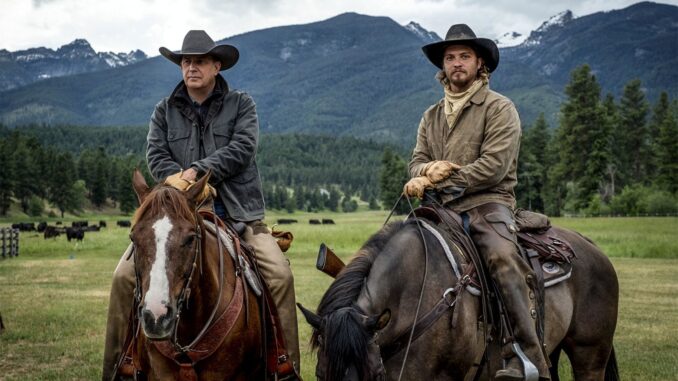
The Showdown at Yellowstone: Unraveling Kevin Costner's Exit
The sprawling landscapes of Montana, the simmering tensions between cowboys and developers, and the magnetic presence of John Dutton – “Yellowstone” became a cultural phenomenon, a modern Western that captivated millions. At its heart was Kevin Costner, the stoic patriarch holding onto his family legacy and the land they bled for. But the idyllic picture, like the Dutton ranch itself, concealed a storm brewing. When news broke of Costner’s exit from the series, it wasn’t just a plot twist; it was a behind-the-scenes drama worthy of its own season, a complex narrative of ambition, ego, and ultimately, a fractured partnership. Understanding “what really happened” requires untangling a web of conflicting reports, leaked information, and the enduring power dynamics that shape the entertainment industry.
Initially, the narrative painted a picture of scheduling conflicts. Costner, a seasoned filmmaker with a burning desire to tell his own stories, was allegedly devoting too much time to his ambitious Western epic, “Horizon: An American Saga.” Reports suggested that his limited availability was disrupting the production schedule of "Yellowstone," forcing rewrites and causing friction with creator Taylor Sheridan. This narrative, while plausible on the surface, only scratched the surface of a more profound disconnect.
Deeper scrutiny revealed a growing discontent with the direction of "Yellowstone" itself. Some accounts claimed that Costner felt sidelined, his character's storyline diminishing in importance compared to the ensemble cast. The initial focus on John Dutton's internal struggles and his fight to preserve the ranch was allegedly shifting, diluting the essence of the show that initially drew him in. While this claim remains largely anecdotal, it speaks to the creative control often wielded by star power and the inherent tension between ensemble narratives and lead actors who crave central focus.
The issue of creative control was further exacerbated by financial considerations. Reportedly, Costner had renegotiated his contract for seasons five, six, and seven, demanding significant compensation. While actors of his caliber are often granted such concessions, the economic realities of television production are always a delicate balancing act. The significant financial commitment to Costner, coupled with his allegedly reduced availability, likely put immense pressure on Paramount and Sheridan, leading to a reassessment of the show's future and Costner's role within it.
Beyond the financial and creative disagreements, personal dynamics likely played a crucial role. The entertainment industry thrives on collaboration, but ego and ambition often collide. While specific details remain shrouded in NDAs and PR spin, whispers of creative differences between Costner and Sheridan, fueled by both ambition and perceived disrespect, cannot be discounted. The dynamic between a Hollywood icon and a rising showrunner, both with strong visions for their respective projects, was perhaps destined for conflict.
The aftermath of Costner's departure was equally tumultuous. The initial plan to split the fifth season into two parts, with the second half designed to wrap up John Dutton's storyline, was ultimately abandoned. "Yellowstone" was instead slated to conclude with a single, elongated finale, followed by a sequel series starring Matthew McConaughey. This decision, while seemingly pragmatic, speaks to the profound impact of Costner's absence and the need to reinvent the franchise without its central figure.
Ultimately, the true narrative of Kevin Costner's exit from "Yellowstone" is likely a complex tapestry woven from scheduling conflicts, creative disagreements, financial considerations, and personal dynamics. While the surface story focused on scheduling constraints and film ambitions, the deeper reality reveals a clash of titans, a power struggle between star power and creative vision, and the inevitable compromises that define the television landscape. Like the untamed land of "Yellowstone" itself, the behind-the-scenes drama proves that even in a fictional world of cowboys and cattle barons, the most compelling stories often lie in the messy, unpredictable realm of human ambition and the relentless pursuit of power. The dust may have settled on the Dutton ranch, but the legend of Costner's exit will continue to fuel speculation and intrigue for years to come, a stark reminder that even the most successful partnerships can crumble under the weight of their own ambitions.
